Introduction: In this article, Mary Harrell-Sesniak searches old newspapers to place some Civil War quotes into a fuller context. Mary is a genealogist, author and editor with a strong technology background.
Much has been written about the Civil War and its impact on the United States – and many have quoted the words of the great leaders of the time. But sometimes those leaders’ words are not put into the context of the speech itself. A good way to correct that is to read those words as they were reported in newspaper articles of the time.
To do this research, I searched through the online collection of GenealogyBank’s Historical Newspaper Archives, and found the newspaper articles shown below that contain some interesting quotes from the Civil War. To read each article in full, and thereby see the quotes in the fullest context, just click on the clipping itself.
Before browsing the articles (which identify the speaker for each quote), see if you’re a quote guru by matching the statements to their authors in this quiz I’ve created. Just for fun, I’ve included a quote I liked from an unknown author.
The newspaper clippings are shown below in chronological order. None are added as a political statement, but rather to illustrate the importance of confirming historical statements by reading the reports of the time.
Good luck!
Civil War Quote Quiz (free to share)
by Mary Harrell-Sesniak
| A | “A house divided against itself cannot stand.” | 1 | Braxton Bragg |
| B | “A restitution of the Union has been rendered forever impossible…” | 2 | Harriet Beecher Stowe |
| C | “All free people know, that if they would remain free, they must compel the Government to keep its hands off their private property…” | 3 | Unknown |
| D | “Do your duty in all things like the old Puritan. You cannot do more; you should never wish to do less. Never let me and your mother wear one gray hair for any lack of duty on your part.” | 4 | A Union captain in General Grant’s army |
| E | “Free speech is as necessary as the vital air.” | 5 | Robert E. Lee |
| F | “I prefer, gentlemen, to speak as little as possible, lest what I may say should be tortured and construed into something wrong.” | 6 | Abraham Lincoln |
| G | “Stand your ground; are you cowards; stand your ground and maintain your rights, or die…” | 7 | William Tecumseh Sherman |
| H | “We shall show you that we are stronger than you, and that we will beat you in the long run.” | 8 | Jefferson Davis |
| I | “We shall take it with as little loss of life as possible, but take it anyhow.” | 9 | Stephen A. Douglas |
| J | “We thank God for mothers that cheer on their sons, for young wives that have said ‘go’ to their husbands, for widows who have given their only sons.” | 10 | Cadwallader C. Washburn |
Stephen A. Douglas
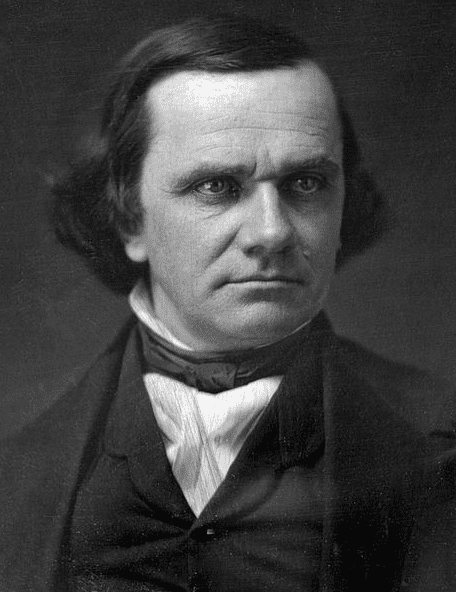
One has to recognize that our country was in the midst of a great debate for many years leading up to the Civil War. One of the great spokesmen was Stephen A. Douglas, an Illinois politician and designer of the Kansas-Nebraska Act. He did not live to see the end of the Civil War. Early in 1860, he was quoted as saying:
All free people know, that if they would remain free, they must compel the Government to keep its hands off their private property; and this can be done only by tying them up with careful restrictions.
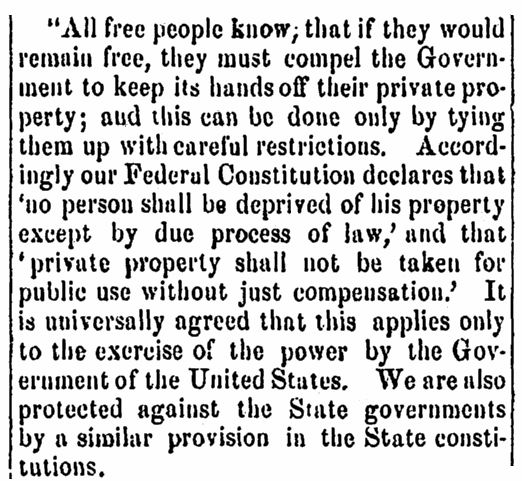
An Unknown Author
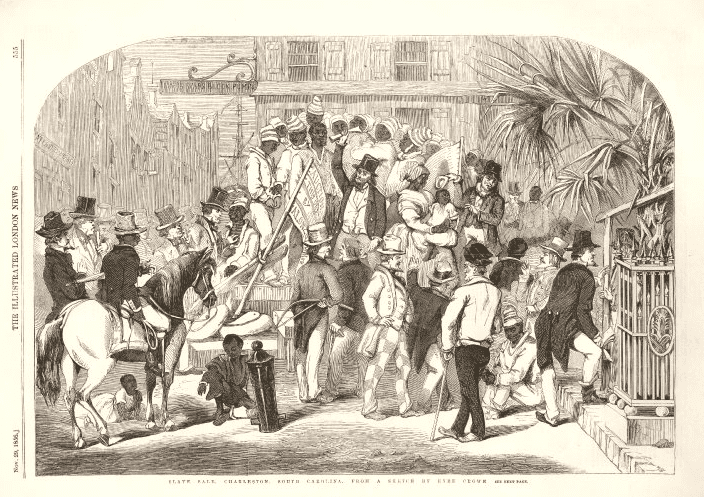
The author of the quote “Free speech is as necessary as the vital air” is unknown, but the words resonate – especially when read in this 1860 newspaper article titled “Free Speech – The Right to Discuss Slavery in Slaveholding States.”
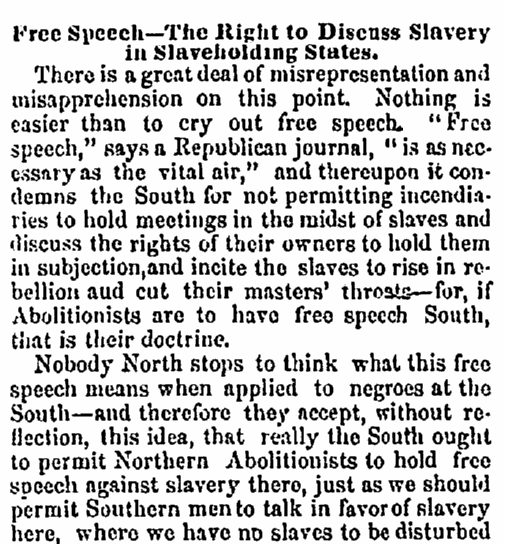
Cadwallader C. Washburn
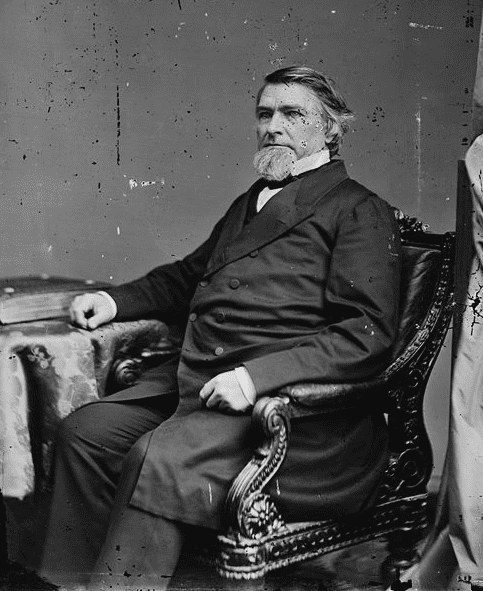
Prior to the 1860 presidential election, Cadwallader C. Washburn – the American businessman and congressman who founded General Mills – supported Abraham Lincoln for president. During the Civil War he served as a colonel, brigadier general and finally major general. In an 1860 speech he said:
Stand your ground; are you cowards; stand your ground and maintain your rights, or die; stand like your own brave standard bearer, Abraham Lincoln.
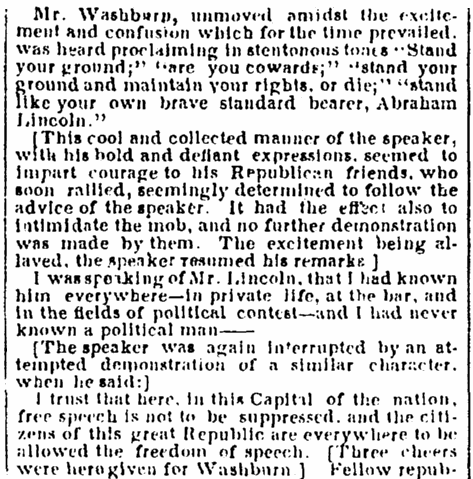
Abraham Lincoln

Abraham Lincoln’s statements and sayings are widely quoted and many have become famous. Here are some quotes from 1860, with the first one lesser known than the others.
[I suppose] that the friends of popular sovereignty would say – if they dared speak out – that polygamy was wrong and slavery right; and therefore one might thus be put down and the other not.
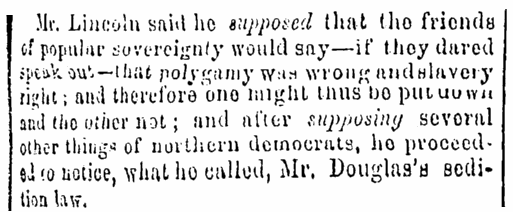
One of Lincoln’s most famous statements was “A house divided against itself cannot stand.” It is even more interesting if you read this 1860 newspaper article containing that quote, beginning with his statement that:
I believe that the right of property in a slave is not distinctly and expressly affirmed in the Constitution.
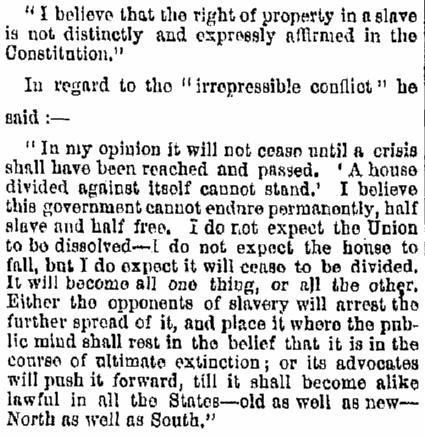
Harriet Beecher Stowe

In 1861, Harriet Beecher Stowe, the well-known abolitionist and author of Uncle Tom’s Cabin, wrote words which reminded this 1861 newspaper article’s author of the devotion of women during the American Revolution:
We thank God for mothers that cheer on their sons, for young wives that have said “go” to their husbands, for widows who have given their only sons.
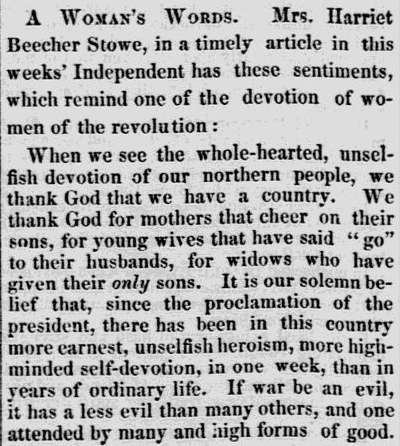
Braxton Bragg
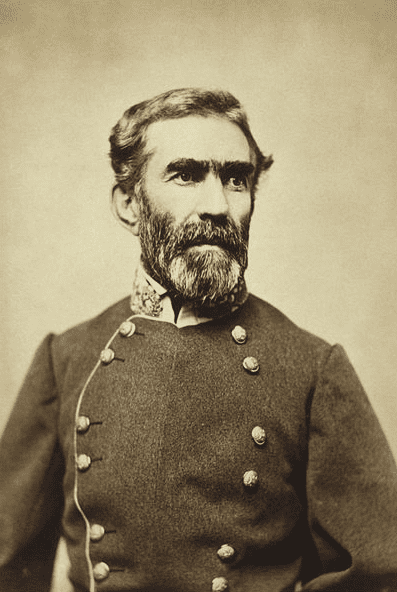
In 1861, Confederate General Braxton Bragg was confident in the South’s ability to win the war. He said:
We shall show you that we are stronger than you, and that we will beat you in the long run.

William Tecumseh Sherman
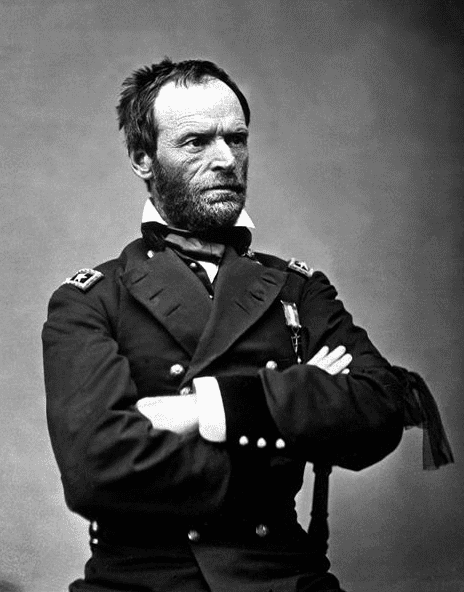
William Tecumseh Sherman, the Union general famous for his march to the sea, was not fond of public speaking. In 1861, while in Cincinnati, he said:
I prefer, gentlemen, to speak as little as possible, lest what I may say should be tortured and construed into something wrong.
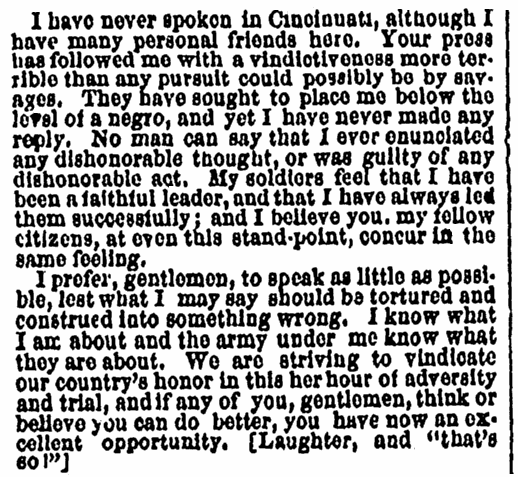
Jefferson Davis

In 1863, President of the Confederate States Jefferson Davis was reported by a northern newspaper as saying this quote to the Southern Congress:
A restitution of the Union has been rendered forever impossible…
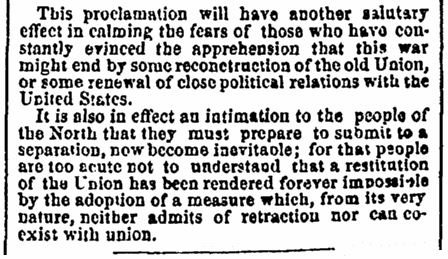
A Union Captain in General Grant’s Army
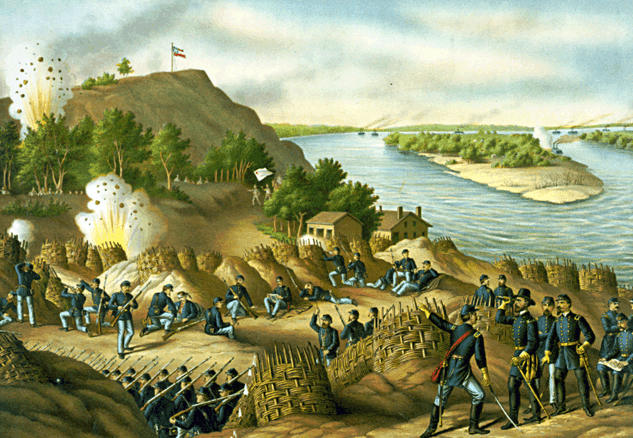
Before he became the 18th U.S. President, Ulysses S. Grant was Commanding General of the Union Army, and led the campaign against Vicksburg. In 1863, while giving a speech about the strength of the enemy prior to the Battle of Vicksburg, a captain in General Grant’s army said:
We shall take it with as little loss of life as possible, but take it anyhow.
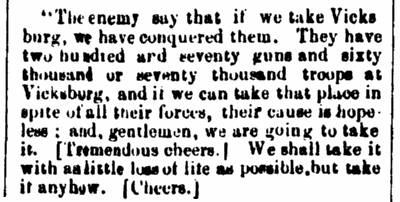
Robert E. Lee

Confederate Army of Northern Virginia General Robert E. Lee wrote a touching letter to his son G. W. Custis Lee in 1864. Among his other fatherly advice statements was:
Do your duty in all things like the old Puritan. You cannot do more; you should never wish to do less. Never let me and your mother wear one gray hair for any lack of duty on your part.
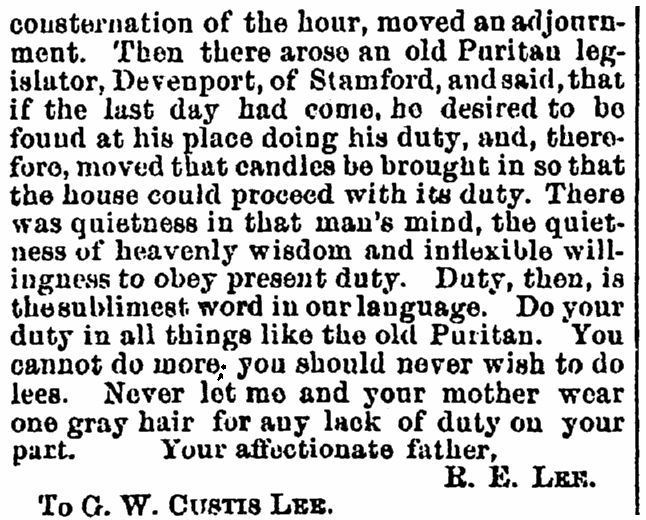
Answers to the Quiz
| A | “A house divided against itself cannot stand.” | Abraham Lincoln |
| B | “A restitution of the Union has been rendered forever impossible…” | Jefferson Davis |
| C | “All free people know, that if they would remain free, they must compel the Government to keep its hands off their private property…” | Stephen A. Douglas |
| D | “Do your duty in all things like the old Puritan. You cannot do more; you should never wish to do less. Never let me and your mother wear one gray hair for any lack of duty on your part.” | Robert E. Lee |
| E | “Free speech is as necessary as the vital air.” | Unknown author |
| F | “I prefer, gentlemen, to speak as little as possible, lest what I may say should be tortured and construed into something wrong.” | William Tecumseh Sherman |
| G | “Stand your ground; are you cowards; stand your ground and maintain your rights, or die…” | Cadwallader C. Washburn |
| H | “We shall show you that we are stronger than you, and that we will beat you in the long run.” | Braxton Bragg |
| I | “We shall take it with as little loss of life as possible, but take it anyhow.” | A Union captain in General Grant’s army |
| J | “We thank God for mothers that cheer on their sons, for young wives that have said ‘go’ to their husbands, for widows who have given their only sons.” | Harriet Beecher Stowe |
Note: An online collection of newspapers, such as GenealogyBank’s Historical Newspaper Archives, is not only a great way to learn about the lives of your ancestors – the old newspaper articles also help you understand American history and the times your ancestors lived in, and the news they talked about and read in their local papers. Did any of your ancestors serve in the Civil War? Please share your stories with us in the comments section.
Related Articles:
